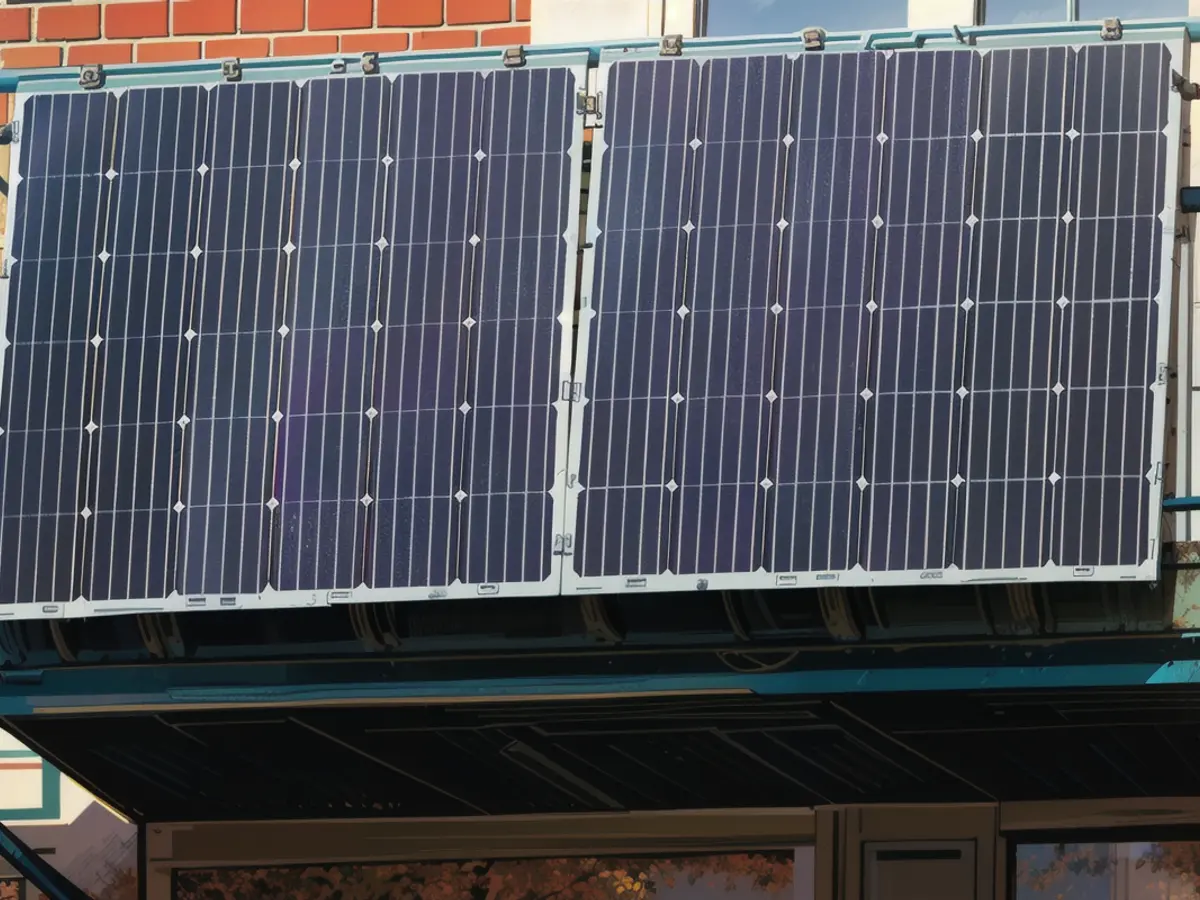Harnessing the potential of the sun for generating electricity is known as solar power. - Approximately 500,000 balcony-mounted power plants in Germany.
Balcony solar power is on the rise. Over the weekend, more than half a million solar panels were registered on the grid, according to data from the Federal Network Agency - more than double the number since mid-2023. In just two months, around 94,000 mini-solar panels have been operational this quarter. It's likely that the previous record of 100,000 from the second quarter of last year will be surpassed.
Reaching 500k on Saturday with 500,810, the number climbed to 503,134 on Sunday. It's estimated that the actual number of balcony solar power systems may be higher, as operators have a month after commissioning to register and some systems may not be registered despite being required to do so.
Simplified Registration with Network Agency
The fluctuating quarterly record could be due to the season and favorable offers for these devices. Since April 1st, GridRegistry registration has been sufficient in addition to the previous obligation to register with the network operator. However, the latest simplifications from the SolarPackage have only been in effect since mid-May. These changes may not have had enough time to make a significant impact.
Meters allow immediate use
Since May 16th, it's possible to use old meters that run backwards when power is fed in. The Consumer Center NRW explained: "This temporary tolerance allows the device to be connected immediately after installation, regardless of what meter is installed." The network operator decides whether and when the meter will be exchanged, and incurs no costs.
Changing rules for landlords and housing cooperatives
Network Agency President Klaus Müller applauded the growth: "We've made it easier and less bureaucratic to register balcony solar power plants." He continued, "This gives many people the opportunity to contribute to the energy transition."
Solar Association Managing Director Carsten Köring called the growth a "small energy revolution on Germany's balconies": "At last, the energy transition has reached tenants and homeowners." These plug-and-play solar systems offer a low-cost entry point for millions. After removing bureaucratic barriers, Köring expects the trend to continue.
The popularity of small and inexpensive balcony solar power systems has increased since 2022, also due to the significant rise in electricity prices. In 2022, about 65,000 new panels were registered, increasing to about 280,000 in 2023, and more than 150,000 this year. These systems consist of solar modules with an inverter to convert solar power into household current. This current can be fed directly into a home's power grid via a socket.
Solar energy from the balcony saves electricity costs
Using these systems reduces the need to buy electricity from the electricity supplier. Excess electricity flows into the public network for free.
The Consumer Center notes that the feasibility of such a system depends on factors like cost, electricity price, and the system's exposure to sunlight.
Despite its rapid growth, balcony solar power plays a minor role in Germany's electricity generation. Even at record levels, these mini systems contribute less than 1% to Germany's total electricity production.
Read also:
- The Federal Network Agency in Bonn has reported an increase in balcony solar power systems, with over 500,000 registered since the weekend.
- The growth in balcony solar power is a result of the energy transition in Germany, with more than half a million panels registered on the grid over the weekend.
- Energy savings are a key benefit of balcony solar power, as excess electricity generated can be fed back into the public network for free.
- Consumer advice centers in Germany are providing information and advice on the feasibility of installing balcony power stations, taking into account factors such as cost and sunlight exposure.
- The popularity of balcony solar power systems has surged in recent years, driven in part by the significant rise in electricity prices in Germany.
- The Solar Association in Germany has hailed the growth in balcony solar power as a "small energy revolution", and expects the trend to continue as bureaucratic barriers are removed.
- Despite its rapid growth, balcony solar power only contributes a small percentage to Germany's total electricity production, accounting for less than 1% at its peak.








